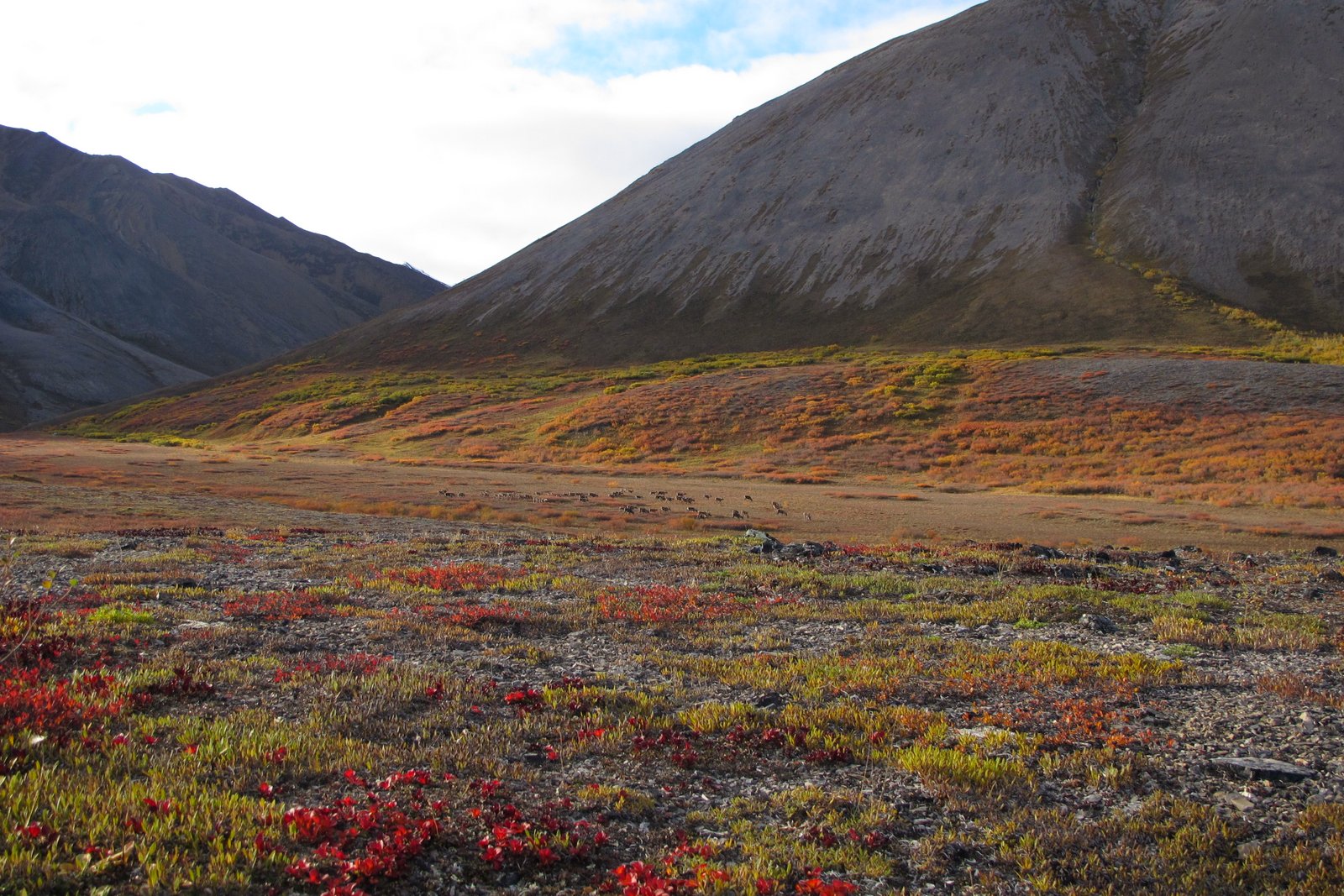Ambler mining work is paused, but Alaska pushes ahead on a controversial mine road
Trilogy Metals has scrapped its summer exploration plans, but the Alaska agency funding the road will continue its pre-construction work.

The company seeking to develop mines in the isolated Ambler district of northwestern Arctic Alaska has tabled its plan for summer exploration, citing the coronavirus pandemic.
The fieldwork that had been scheduled for this summer has been scrapped, Vancouver-based Trilogy Metals Inc. said when it released its second-quarter financial results on July 8.
Ambler Metals LLC., the partnership between Trilogy and Australia-based South32, gave “due consideration to the merits of carrying out an abridged work program” at the Upper Kobuk Mining Project, Trilogy said in its statement.
“However, given the continued uncertainty resulting from COVID-19, ongoing safety concerns (despite added safety protocols including physical distancing, protective equipment and testing) and the fact that, due to COVID-19, the planned field season had already been delayed to the point at which any field season would provide limited critical path benefits, the decision has been made not to proceed with a 2020 field season,” the statement said. “The safety of our employees, contractors and the communities where we work is paramount.”
The deferral of fieldwork is not expected to significantly affect the timeframe for developing the mining projects, Trilogy said. In the interim, Amber Metals will continue to metallurgical test work and other analysis, Trilogy said.
While Trilogy is delaying its summer work, one Alaska state agency is pushing for crews to go out to the road corridor to conduct pre-construction work.
The Alaska Industrial Development and Export Authority, at its June 24 meeting, approved a $500,000 spending plan to pay for pre-construction work on the controversial 211-mile road that would provide access to the mining area.
AIDEA is the sponsor of the road project, which would run through the Brooks Range foothills to enable commercial development of the Ambler District’s copper and other minerals. The road, which would cut across part of Gates of the Arctic National Park and Preserve, is vehemently opposed by tribal governments located along the road route. Opponents cite threats to the Western Arctic Caribou Herd, the continent’s largest caribou herd, and other natural resources, and some critics question the economic and fiscal soundness of the state’s involvement in the project.
The 2020 pre-construction work plan to be funded by the money approved by the AIDEA board comprises aerial photography and collection of LiDAR data along the planned road route, additional community outreach, analysis of cultural resources and the hiring of an external program manager.
The $500,000 is to come from AIDEA’s Arctic Infrastructure Fund. AIDEA in April shifted $35 million into that fund, with the Ambler road listed as one of the key projects for which the money would be used.
AIDEA said Ambler Mining LLC will match the $500,000 funding for this year’s work.
That commitment has now been sealed in a signed funding agreement, Karsten Rodvik, an AIDEA spokesman, said Thursday. No date has been yet established for the start of this summer’s preconstruction fieldwork, he said. The work will be performed by subcontractors for DOWL, he said. The engineering company that has done Ambler road planning and design work in the past
The cost of the 2020 work program has been calculated at just under $1 million, with Ambler Metals contributing half of the money, Rodvik siad.
The AIDEA board was unanimous in its June 24 approval of the spending, but controversy over the Ambler access road and the mining development that it would support was evident in the public comments given by teleconference just before the decision.
Kati Capozzi, president of the Alaska Chamber of Commerce, was among those who spoke in favor of the road and the preconstruction work to happen this summer.
If built, the road will create access to needed to develop mines, something that fits the chamber’s mission of promoting resource development, she told the AIDEA board. “Most important, the project will bring new jobs for Alaskans. There is no more important time to identify new job opportunities for Alaskans than right now,” she said.
In contrast, Alex Johnson, Alaska program manager for the National Parks Conservation Association, said AIDEA has made “wildly optimistic projections about benefits to Alaskans,” and those projections have been unfounded. Those projections include estimates of jobs to be created with the summer pre-construction work, he said.
“Rather than spending that money on an industry pipe dream, I encourage AIDEA to spend it on Alaskan businesses who need it right now,” he said.